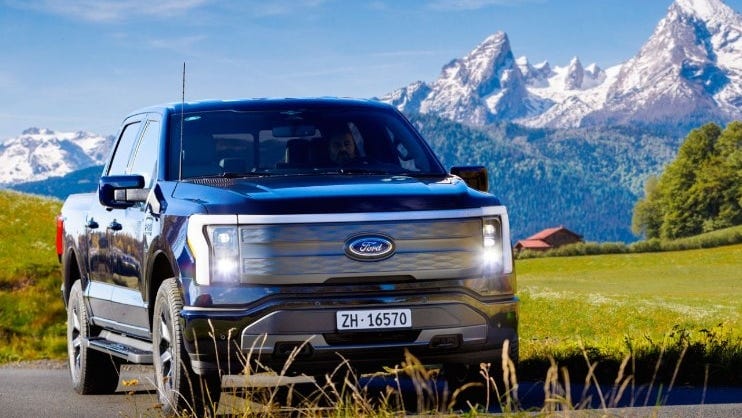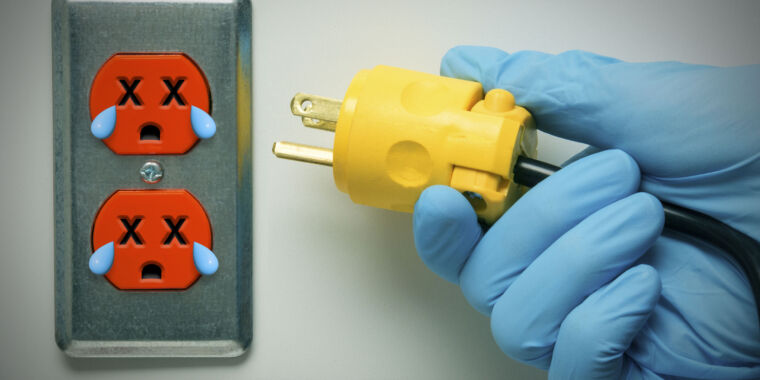Electric vehicles may be the future, but in some ways they look a lot like the past. Particularly reliability.
That’s the bottom line from Consumer Reports’ eagerly anticipated annual reliability survey, which sounds like an ‘80s tribute act: the top tier, brands credited with excellent or very good reliability, is dominated by Japanese automakers, with a smattering of Europeans and a South Korean.
Unlike those bad old days, though, the culprits are advanced electronics, not oil leaks and faulty transmissions.
Electric vehicles are among the worst offenders.
“The problems with internal combustion engines are mostly sorted,” Jake Fisher, Consumer Reports senior director of testing, told me. “The new problems are mostly associated with electronics: Electric vehicles that use brand new platforms and power trains.”
In a positive change from the era of the Cadillac Cimarron, U.S.- based brands — Buick, Cadillac, Chevrolet, Dodge, Ram and Tesla — earned six of CR’s 11 “good” ratings, along with Hyundai, Infiniti, Nissan, Genesis and Audi.
Spots 22-29 —“fair” — went to Ford, Lincoln, GMC, Volvo, Jeep,Volkswagen, Rivian and Ford. Chrysler had the bottom rung, “poor,” to itself. Several brands — Alfa Romeo, Mitsubishi, Land Rover and Jaguar among them — were omitted due to insufficient data.
So much for the good news.
EVs in model years 2021-24 suffered about twice as many reliability problems as internal combustion engines, or ICE, according to CR’s survey of about 70,000 vehicles.
The five least reliable vehicle categories, from bad to worse, are:
Hybrids were the big winners, with an average 26% fewer problems. Faring worst were plug-in hybrid vehicles, an extremely promising technology that features a bigger battery than a regular hybrid, so the vehicle can go farther on electricity in daily driving, but also has a gasoline engine for long trips. PHEVs had 146% as many issues as ICE vehicles.
“PHEVs are more complicated and automakers have less experience with them,” Fisher said. “Although Toyota, Hyundai and Kia’s PHEVs are all very reliable."
“EVs are brand new vehicles with brand new powertrains and often built on brand new platforms,” Fisher said. "That’s a lot of things that can go wrong, especially in the early days of a technology’s adoption.”
There’s a double whammy on top of that, he said: Established automakers are new to building EVs, while EV specialists are new to the high-volume production of automobiles.
Want more? Many EVs are marketed mainly to early adopters, people who crave the latest technology.
“Throwing all that technology at a new vehicle just complicates things further,” Fisher said.
“Hybrids have been around for 25 years. They’re established technology with reliability superior to ICE. And they’re generally sold to practical people who aren’t weighed down by a desire for new features and technology.”
“Used well, OTAs are a positive,” Fisher said. “Used poorly, they’re a problem.”
The leading automakers in CR’s reliability survey, Toyota and Honda, “are very conservative,” Fisher said.
General Motors and Ford, by comparison, “are all-in in new technology, and they walked away from small and midsize sedans that were some of the industry’s most reliable vehicles.”

That’s the bottom line from Consumer Reports’ eagerly anticipated annual reliability survey, which sounds like an ‘80s tribute act: the top tier, brands credited with excellent or very good reliability, is dominated by Japanese automakers, with a smattering of Europeans and a South Korean.
Unlike those bad old days, though, the culprits are advanced electronics, not oil leaks and faulty transmissions.
Electric vehicles are among the worst offenders.
“The problems with internal combustion engines are mostly sorted,” Jake Fisher, Consumer Reports senior director of testing, told me. “The new problems are mostly associated with electronics: Electric vehicles that use brand new platforms and power trains.”
In a positive change from the era of the Cadillac Cimarron, U.S.- based brands — Buick, Cadillac, Chevrolet, Dodge, Ram and Tesla — earned six of CR’s 11 “good” ratings, along with Hyundai, Infiniti, Nissan, Genesis and Audi.
Spots 22-29 —“fair” — went to Ford, Lincoln, GMC, Volvo, Jeep,Volkswagen, Rivian and Ford. Chrysler had the bottom rung, “poor,” to itself. Several brands — Alfa Romeo, Mitsubishi, Land Rover and Jaguar among them — were omitted due to insufficient data.
Consumer Reports brand reliability ratings
- Lexus
- Toyota
- Mini
- Acura
- Honda
- Subaru
- Mazda
- Porsche
- BMW
- Kia
- Hyundai
- Buick
- Infiniti
- Tesla
- Ram
- Cadillac
- Nissan
- Genesis
- Audi
- Chevrolet
- Dodge
- Ford
- Lincoln
- GMC
- Volvo
- Jeep
- Volkswagen
- Rivian
- Mercedes-Benz
- Chrysler
More tech, more problems
“This is a super exciting time in the auto industry,” Fisher said. “EVs are bringing major changes in technology and performance. Cars and trucks that can go zero to 60 in less than four seconds are becoming commonplace.”So much for the good news.
EVs in model years 2021-24 suffered about twice as many reliability problems as internal combustion engines, or ICE, according to CR’s survey of about 70,000 vehicles.
The five least reliable vehicle categories, from bad to worse, are:
- Electric cars
- Electric SUVs
- Full-size pickups
- Midsize pickups
- Electric pickups
- The Ford F-150 Lightning and Rivian R1T fared poorly with CR readers.
- Tesla, despite its own well-documented quality issues, has a pretty low bar to clear when it finally begins delivering meaningful numbers of its long awaited Cybertruck.
Hybrids were the big winners, with an average 26% fewer problems. Faring worst were plug-in hybrid vehicles, an extremely promising technology that features a bigger battery than a regular hybrid, so the vehicle can go farther on electricity in daily driving, but also has a gasoline engine for long trips. PHEVs had 146% as many issues as ICE vehicles.
“PHEVs are more complicated and automakers have less experience with them,” Fisher said. “Although Toyota, Hyundai and Kia’s PHEVs are all very reliable."
Consumer Reports' most reliable vehicle categories
- Compact cars
- Sporty/sports cars
- Small pickups
- Midsize/large cars
- Luxury midsize/large cars
- Compact SUVs
- Subcompact SUVs
- Luxury midsize SUVs
- Luxury compact cars
- Luxury compact SUVs
- Minivans
- Midsize two-row SUVs
- Luxury midsize three-row/large SUVs
- Midsize three-row/large SUVs
- Electric cars
- Electric SUVs
- Full-size pickups
- Midsize pickups
- Electric pickups
Practice makes reliable, if not perfect
The poor reliability isn’t due to an inherent problem with EVs, but rather that the technology and parts to make them are new.“EVs are brand new vehicles with brand new powertrains and often built on brand new platforms,” Fisher said. "That’s a lot of things that can go wrong, especially in the early days of a technology’s adoption.”
There’s a double whammy on top of that, he said: Established automakers are new to building EVs, while EV specialists are new to the high-volume production of automobiles.
Want more? Many EVs are marketed mainly to early adopters, people who crave the latest technology.
“Throwing all that technology at a new vehicle just complicates things further,” Fisher said.
“Hybrids have been around for 25 years. They’re established technology with reliability superior to ICE. And they’re generally sold to practical people who aren’t weighed down by a desire for new features and technology.”
Unanticipated consequences
On top of all that, over the air software updates, or OTAs, touted to allow automakers to fix problems and add features with a download, occasionally misfire, requiring another OTA to fix an issue that may have disabled a key system, or the entire vehicle.“Used well, OTAs are a positive,” Fisher said. “Used poorly, they’re a problem.”
The leading automakers in CR’s reliability survey, Toyota and Honda, “are very conservative,” Fisher said.
General Motors and Ford, by comparison, “are all-in in new technology, and they walked away from small and midsize sedans that were some of the industry’s most reliable vehicles.”

Consumer Reports pummels electric vehicle reliability, praises hybrids
EVs and their advanced electronics have 79% more problems than ICE vehicles, according to CR's eagerly anticipated annual survey.
www.freep.com



